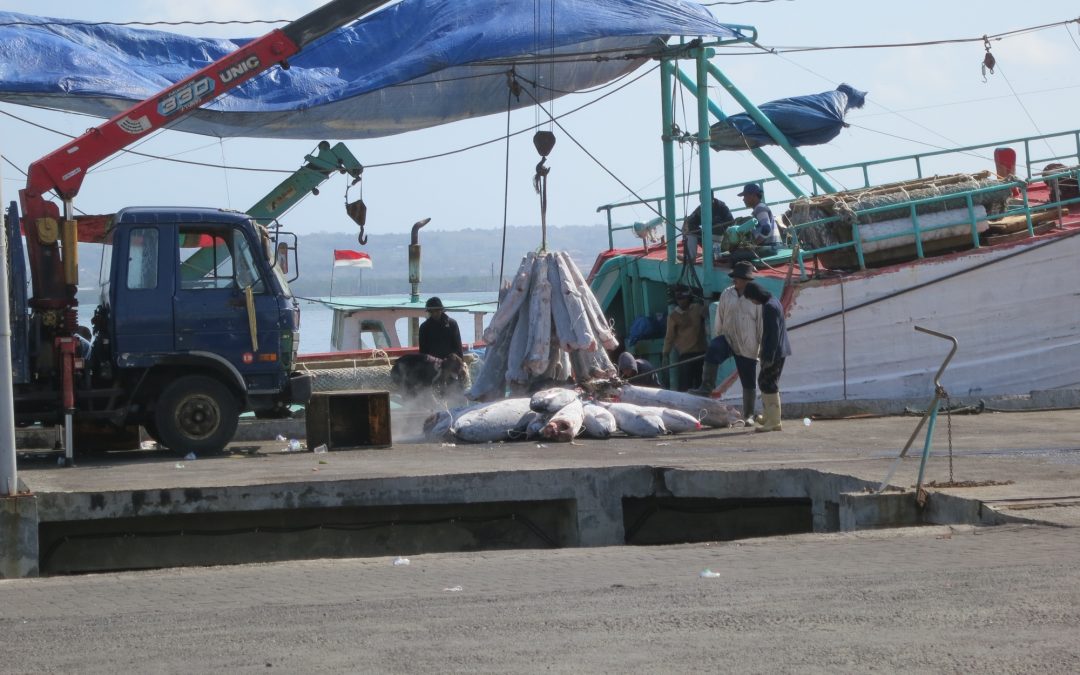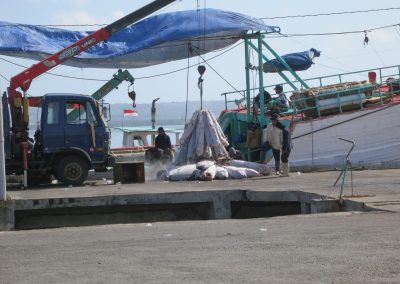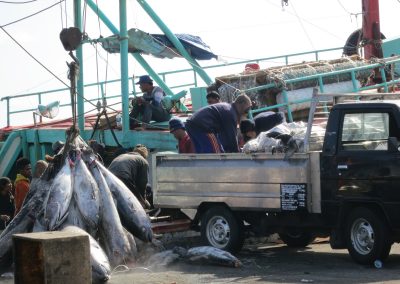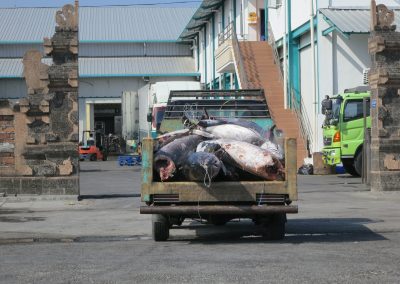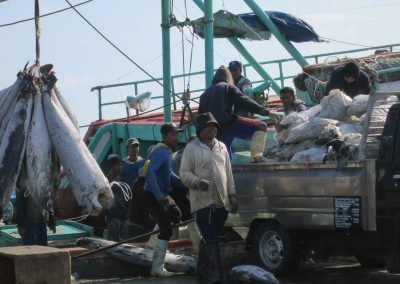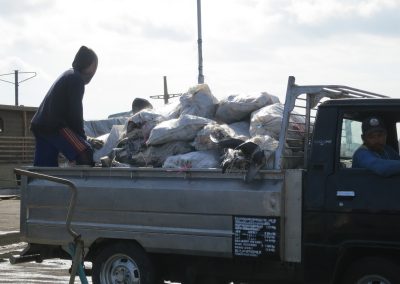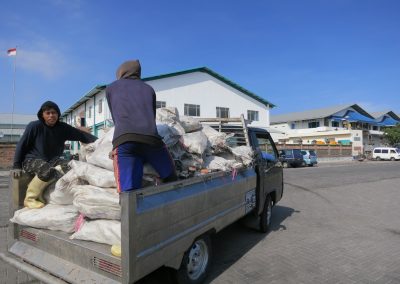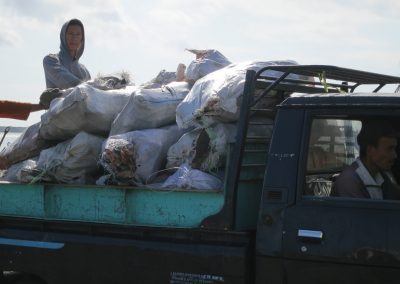The conservation of sharks and rays in Indonesia has seen several success stories over the past year. Shark fins came off the shelf at Jakarta airport, while community patrols stopped shark poachers in Raja Ampat.
There is no denying that these are positive outcomes. But at the same time, it’s important to keep the larger picture in perspective.
A few weeks ago I visited a major fishing port in Bali. This particular port serves a large section of Indonesia’s tuna fleets. But there is more than tuna on the menu.
As I stood on the jetty, in the course of 20 minutes I saw more sharks in one place than I had seen in the previous 20 years of diving and working around them.
Unfortunately these sharks were not cruising through the water, but being unloaded from fishing boats. Bunches of shark carcasses, strung together like bananas, being hoisted into the air by giant cranes. Sacks full of shark fin, slung into trucks until their suspension strained in protest.
The quantity of sharks was shocking. But even more shocking was the response when I asked what these sharks were being used for.
“We use them to make bakso”.
Bakso is a type of meatball, usually made from low quality, low value meat. To me this seems like a waste of a good shark!
Sharks are at the pinnacle of the food chain and reproduce slowly. They are far from an “ideal” target species for a large volume fishery. It seems to me that such a rare and precious catch should demand much higher value than simply being ground into cheap meatballs.
But the problem is legislation. Like manta rays, shark fisheries are not regulated in Indonesia, despite the country being the world’s largest exporter of these products.
With no catch quotas or minimum sizes to restrict catches, prices are likely to remain low until catches start to dwindle and become rare.
With big money at stake–the value of the global shark fin trade exceeds US$550 million per year and Indonesia controls the largest share–this seems like a very short-sighted approach to business. And one that is set to take an immense toll on Indonesia’s shark populations.
So while many positive steps have been taken over the past year, perhaps now is the perfect time to step back, look at the bigger picture, and decide where efforts should be focussed to provide the biggest impacts and successes next year.

